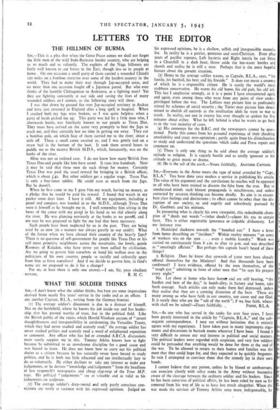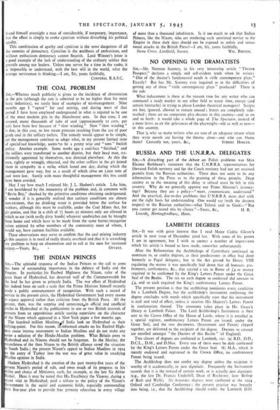Sza,—As one who has served in the ranks for over
four years, I have been greatly interested in the article by " Captain, B.L.A.," and the sub- sequent correspondence. I may say without hesitation that it entirely agrees with my experience. I have taken part in many impromptu argu- ments and discussions in barrack rooms wherever I have been. I found it very difficult to arouse any real interest in political and social matters. The political leaders were regarded with suspicion, and very few soldiers could be persuaded that anything would be done for them at the end of the war. To be allowed to return to their homes and families was the most that they could hope for, and they expected to be quickly forgotten. In vain I attempted to convince them that the remedy lay in their own hands.
I cannot believe that any person, unless he be biased or unobservant, can associate closely with other ranks in the Army without becoming aware of the cleavage between the ordinary soldier and his leaders. Since he has been conscious of political affairs, he has been ruled by men so far removed from his way of life as to have lost touch altogether. When the war made the services of Tommy Atkins once more indispensable, be found himself overnight a man of considerable, if temporary, importance, but the effect is simply to evoke cynicism without disturbing his political apathy.'
This combination of apathy and cynicism is the most dangerous of all the enemies of democracy. Cynicism is the antithesis of enthusiasm, and without enthusiasm democracy cannot flourish. Lord Winster's letter is a good example of the lack of understanding of the ordinary soldier that prevails among our leaders. Unless one serves for a time in the ranks, it Is impossible to understand, with the best will in the world, what the average serviceman is thinking.—I am, Sir, yours faithfully,
CORPORAL R.A.S.C.



























 Previous page
Previous page